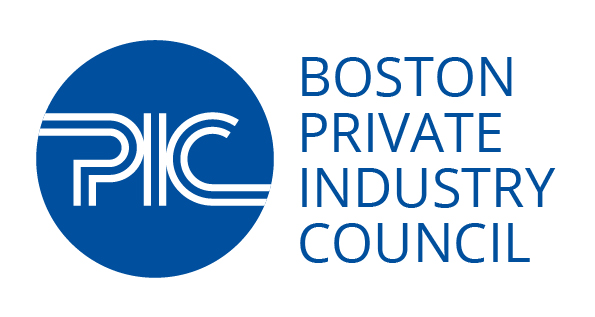Boston Opportunity Youth Collaborative Receives Funding for Data Tracking of At-Risk Students
The Boston Opportunity Youth Collaborative (OYC) has been awarded a grant from the Aspen Institute Forum for Community Solutions to reduce the number of students, particularly young men of color, who get disconnected from high school or community college. Most of the funding will go to the Boston Public Schools (BPS) and Bunker Hill Community College (BHCC) in order to increase their capacity to monitor the status of those students most likely to leave school without earning a diploma, credential, or degree. Better data and better sharing of information will prompt and inform the interventions necessary to get students back on track.
The OYC, a multi-sector coalition convened by the Boston Private Industry Council (PIC) and the Boston Opportunity Agenda (BOA), is dedicated to reconnecting out-of-school youth and young adults to education and employment opportunities.
The $200,000 grant is part of the Aspen Institute’s Data for Impact project within the Opportunity Youth Forum. It will allow the two institutions to better track and analyze student attendance and transfer data for thousands of high school and community college students, with the guidance and support of the OYC, a partnership of more than 80 stakeholders. The project will target subpopulations of BPS and BHCC students.
The project has the following goals:
- Re-engage chronically absent BPS students: This funding will increase BPS’ ability to track chronically absent students at district high schools.
- Track the 1,900 students who transfer high schools each year: This funding will allow BPS to better track the attendance and retention of students who transfer within the district.
- Improve retention rates for boys and men of color in the city’s largest community college: This funding will allow BHCC to track the impact of its interventions around racial equity, which are designed to create a more welcoming environment for Black and Latinx students.
“The Boston Public Schools is committed to providing the necessary resources to re-engage our chronically absent and dropout students to get them back on track for graduation and prepared for success in college, career, and life,” said BPS Superintendent Brenda Cassellius. “This grant will advance equitable outcomes in high school by allowing us to work collaboratively with our community partners to identify off-track youth and target interventions to provide students with the appropriate supports.”
BHCC President Pam Eddinger added, “BHCC has recently embarked on several campus strategies to improve use of data to examine our completion rates. We are excited to build on these efforts and enhance the school’s capability to use data to drive improvements and equity in outcomes for our students.”
Both the BPS and BHCC have a track record of working with collective impact partners to retain and advance students. BPS worked with the PIC-convened Youth Transitions Task Force (YTTF) to cut the annual dropout rate from 9.4% in 2005-2006 to 5.4% in 2017-2018, reducing the number of students leaving school each year from 1,936 to 849.
Over a similar time period, BHCC participated in Success Boston, the city’s college completion initiative, which helped increase the postsecondary enrollment rate for BPS graduates from 67% to 81% and the six-year college completion from 39% to 52%. These collaborations have encouraged the college to implement a number of changes, such as proactively coordinating with non-profits that support its students and streamlining its developmental education programming. The school’s institutional research department has recently expanded staff capacity for student-level measurement.
The Boston PIC and the Boston Opportunity Agenda first convened the Opportunity Youth Collaborative in 2013, thanks to funding from the Aspen Opportunity Youth Incentive Fund. The PIC is Boston’s workforce development board, as well as a 40-year-old nonprofit organization that works to connect Boston residents to promising career paths. The BOA is a public-private partnership that works to increase dramatically the pace and scale of change in education by combining resources, expertise and influence to build Boston’s cradle-to-career educational pipeline.
“By identifying and tracking students who historically are most likely to lack access to needed resources, we can help ensure that they, like their peers, are better prepared to succeed in college, career and life,” said BOA Executive Director Kristin McSwain.
“While we remain committed to working with young adults once they fall out of high school or community college, it only makes sense to help our partner institutions identify Boston students who are struggling with attendance and course completion in order to intervene before they leave altogether,” said PIC Executive Director Neil Sullivan.
More News
